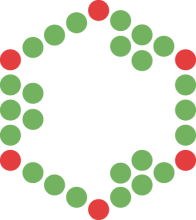Biological Drugs?
 I was on the M4 recently, and we saw an M3 with a cool geeky numberplate, as we were discussing blockade of M2 for swine flu, if only there was an M1 to complete the pattern. Anyway, being the sort of father keen to impress their kids with my exciting life, I took a picture - the kids weren't impressed.
I was on the M4 recently, and we saw an M3 with a cool geeky numberplate, as we were discussing blockade of M2 for swine flu, if only there was an M1 to complete the pattern. Anyway, being the sort of father keen to impress their kids with my exciting life, I took a picture - the kids weren't impressed.
The world is full of hope for the bright future for biological therapies - monoclonal antibodies, solubilised receptors, gene therapy, etc. I've been trying to estimate the size of the biological drug portion of CandiStore, and so here is some data on late stage clinical candidates (i.e. those that had been granted INNs) skimmed from a WHO review document from late 2007. The general pattern will not have changed significantly for 2008 and early 2009.
There are 551 total 'biological' INNs, of which 519 are protein (or glycoprotein) - so 94% of biological drugs are proteins. The breakdown into functional classes for these protein drugs is as follows....
So monoclonal antibodies are the largest single class (at 29%) - not quite as high as I had expected; other interesting general features are the 12% of biological INNs that are enzymes, so these will address 'loss of function' deficiencies, which are impossible to achieve directly with a small molecule agent. Furthermore, seven distinct functional classes of INNs make up three quarters of the total. Finally, the number of launched monoclonal antibody drugs is 34 (not including the most recent Golimumab (or the TradeName Simponi), however, not all of these are therapeutic antibodies (some are imaging agents), so just under a quarter of monoclonal antibody drugs that have been granted an INN have been approved (so far, in the U.S.A, etc., etc.)
More on these trends another day.....

